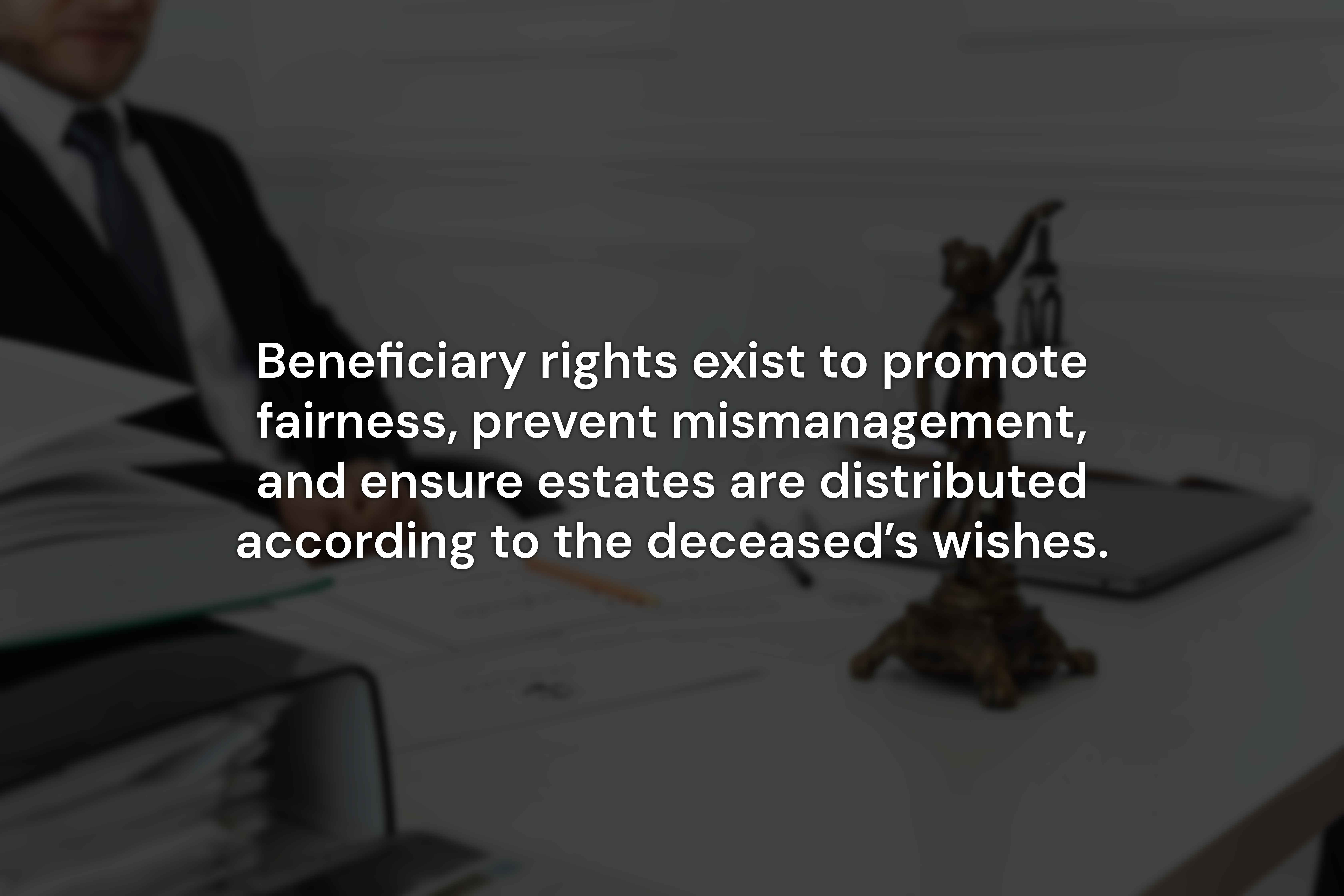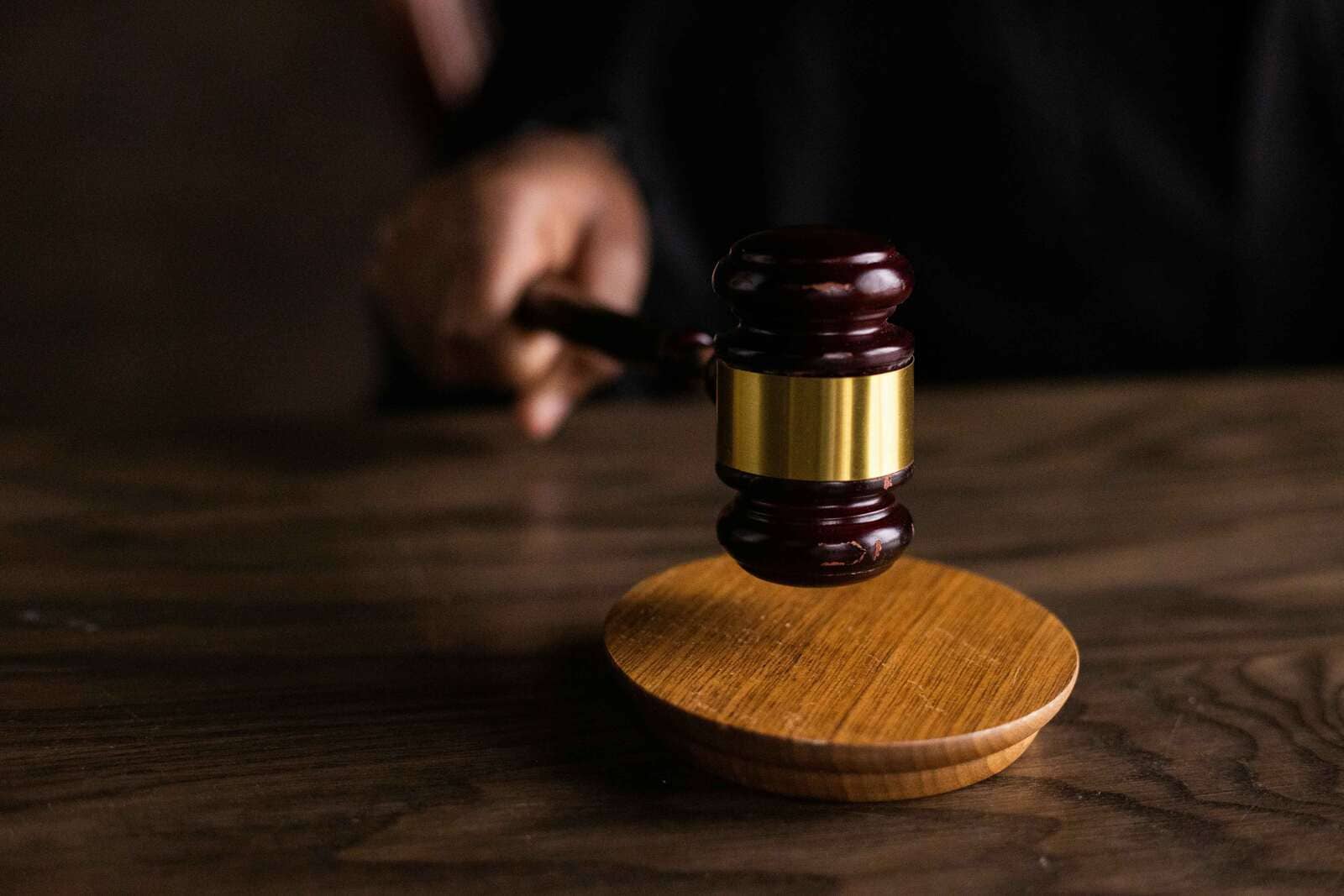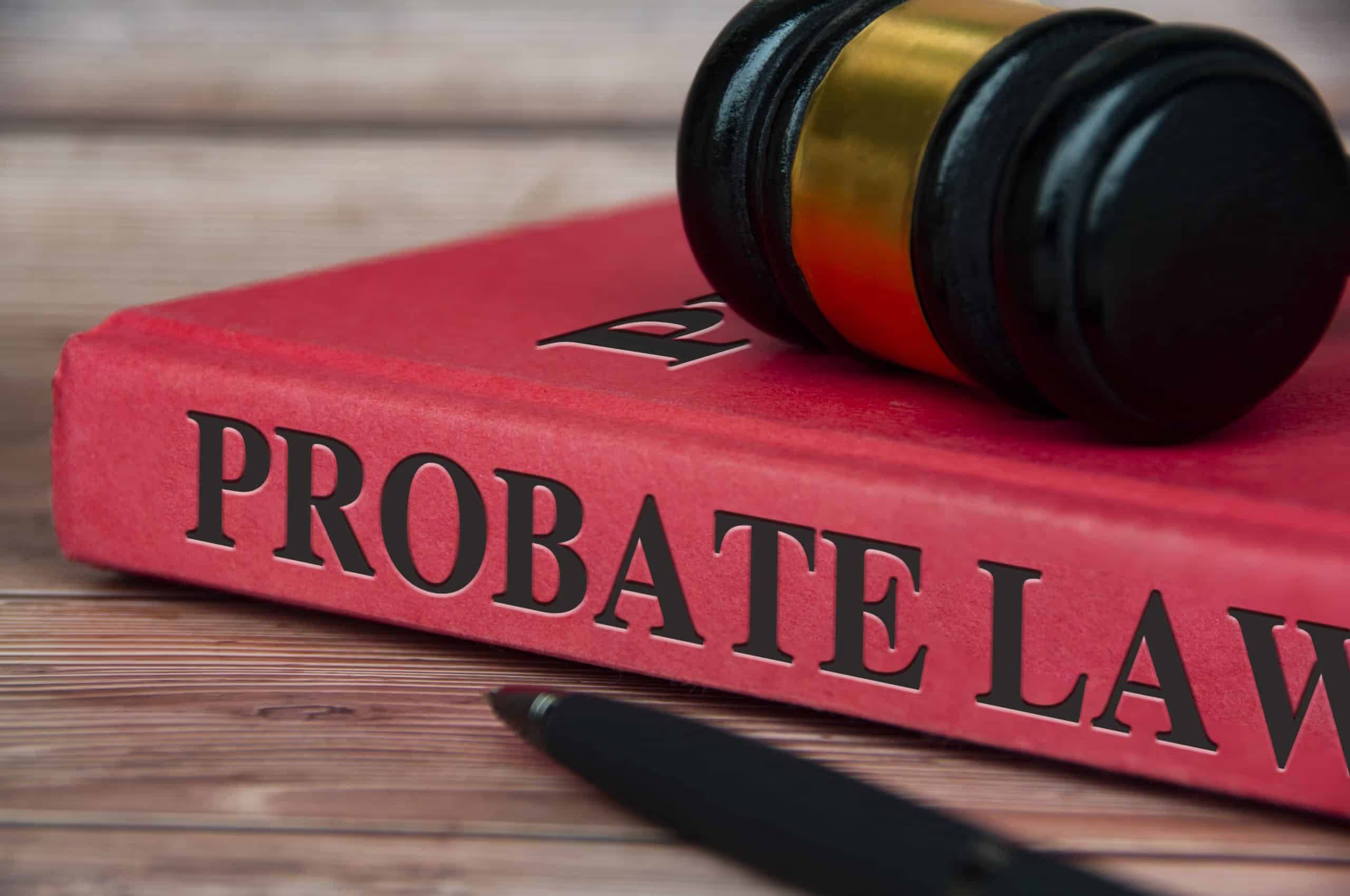Beneficiaries have legal rights during probate to ensure they receive the inheritance intended for them and that the estate is handled properly. These rights include receiving timely information, accessing the will once it is filed, and receiving their inheritance in accordance with the will or state law.

Right to Be Notified
Beneficiaries have the right to receive formal notice when probate begins. This notice informs them that the will has been filed and that the probate process is underway. It also provides details about the executor, court case number, and hearing dates if applicable.
Right to Access the Will
Once the will is filed with the court, beneficiaries have the right to obtain a copy. This transparency allows them to confirm their inheritance and monitor whether the executor is carrying out the will’s instructions.
Right to Information About the Estate
Beneficiaries can request updates from the executor regarding:
- The estate’s assets and liabilities
- Progress in paying debts and taxes
- Expected timelines for distribution
- Regular communication helps prevent disputes and ensures beneficiaries know the status of the estate.
Right to an Accurate Accounting
Before the estate can be closed, the executor must submit a detailed accounting to the court. Beneficiaries have the right to review this report, which lists all income, expenses, debts, and distributions related to the estate.

Right to Challenge the Will
If a beneficiary believes the will is invalid—due to undue influence, fraud, or lack of capacity—they can file a contest in probate court. This initiates a legal process to determine the will’s validity.
Right to Object to Executor Actions
Beneficiaries can object to decisions by the executor if those actions appear to violate the will’s terms or harm the estate’s value. Examples include selling property below market value or failing to maintain assets properly.
Right to Timely Distribution
While probate can take months or years depending on complexity, beneficiaries have the right to receive their share once debts, taxes, and legal requirements are met. Unreasonable delays may be challenged in court.
How Beneficiaries Can Protect Their Rights
Beneficiaries should keep detailed records of all communications, request updates in writing, and attend probate hearings if necessary. Involving a probate attorney early can help safeguard their rights and resolve disputes more efficiently.
Why These Rights Matter
Beneficiary rights exist to promote fairness, prevent mismanagement, and ensure estates are distributed according to the deceased’s wishes. They create a system of checks and balances on the executor’s power.

Related Topics on Beneficiary Involvement
Can a Beneficiary See the Will Before Probate?
In many cases, yes—especially if the executor cooperates. Once probate begins, the will becomes a public record.
Can a Beneficiary Stop the Sale of a Property?
Beneficiaries may be able to halt a sale if it violates the will or harms the estate’s value.
Can You Contest a Will After Probate is Granted?
Yes, but strict legal deadlines and higher evidentiary standards make it more challenging.
What Happens if a Will is Contested in Probate Court?
The court will examine evidence and decide whether to uphold, alter, or invalidate the will.



























